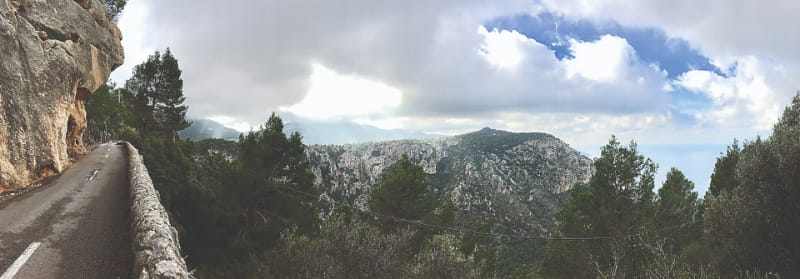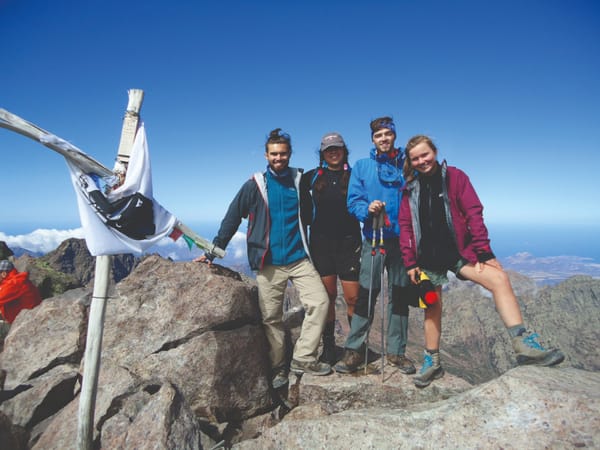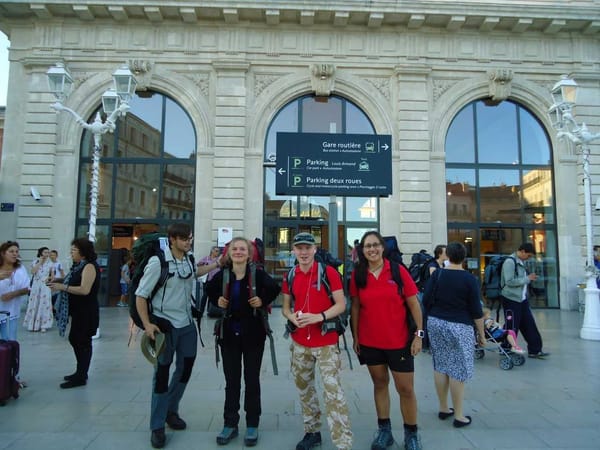Mallorca – more than just a party island!
Mallorca is a go-to place for relentless partying and beach holidays alike but travel writer Tom Whiting reveals the unexpected side of this Mediterranean island.

Despite its reputation as a European party destination, there is much more to Mallorca than drinking the night away in its numerous party resorts, such as Magaluf. With a peak higher than Ben Nevis in Scotland (the highest mountain in the British Isles) and many spots for hiking and climbing, this Mediterranean island offers adventures and excitement for the more outdoor-loving students.
On my recent climbing trip to Mallorca together with the Imperial Outdoor Club (that participates in a wide range of outdoor pursuits) just before Christmas, I experienced a more daring side of the island. While not as popular as mainland Spain for climbing, it boasts routes spanning from ‘beginner’ to ‘expert’ levels of difficulty, with more than enough to satisfy months of climbing, let alone a single week. There are many crags (climbing spots) around the island, although by far the biggest and best one is Sa Gubia. It offers incredible views and routes up to 200 m long, and is well worth the lengthy walk to the start of the climb. While we only managed to squeeze in one day there due to logistics and wanting to visit many of the other areas on the island, we could have easily spent the whole week there as we only scratched the surface of what was on offer, with multiple day-long routes left for another trip.
One of the other memorable crags was Valldemossa, which is situated just outside a small village of the same name and has incredible views over the sea. The only real drawback of the area was that to ascend the rock we needed to climb above the road, so we had to keep our senses heightened a bit more than usual. Besides Valldemossa, we also managed to visit several other climbing areas with great routes and breath-taking views.
“Mallorcan views and terrain easily rival those of more famous destinations in Europe”
Mallorca is also home to some of the best Deep Water Soloing (DWS) in the world, whereby climbers don’t use ropes and rely on falling into the deep water below that cushions their fall. Despite the allure of some of the best and most challenging DWS routes in the world, we decided to stay on the land as the sea can get a bit too nippy in December.
Of course, one of the perks of going to Mallorca during the off-peak season is the low cost: return flights were under £50 and accommodation for a week was less than £10 per night. Plus, the food is far better than what you can expect to get in London for the same price, and if you decide to have a tipple, the wine that you can get for a couple of pounds at the local supermarket goes down a lot better than cheap UK wines (the €1.50 Cava is a particular treat). Although it’s pretty much essential to hire a car to get around and explore the island, this doesn’t add much to the overall expenses as it can cost as little as £35 per week – and if there are four of you in the vehicle, it becomes ludicrously cheap.

While December might not seem like the perfect time to visit the Balearic Islands, the temperature was still a warm-ish 15°C and far hotter than the UK was experiencing. The slightly lower temperature is also better for climbing as the summer highs of around 30°C make climbing almost unbearable. It does get a bit chilly at night and when the sun hides behind the clouds or a rock face, but it’s made up for by the feeling of achievement that you can get when you reach the top of a climb and can look down on the route you’ve just conquered.
So if you harbour even the smallest interest in the great outdoors, Mallorca is certainly well worth a visit. The low cost of a trip there should be more than enough to entice a student, but the views and terrain alone easily rival those of more famous destinations in Europe and will hopefully lead to more tourists going there to explore the countryside rather than spending all night on the Magaluf Strip.
The IC Outdoor Club regularly holds both indoor and outdoor climbing activities, and, as well as organising trips abroad, arranges multiple trips within the UK each term for hiking, mountain biking, climbing, and more. Contact outdoor@ic.ac.uk for more information.









